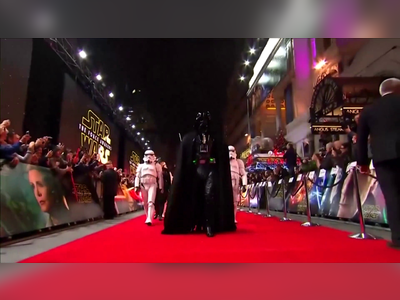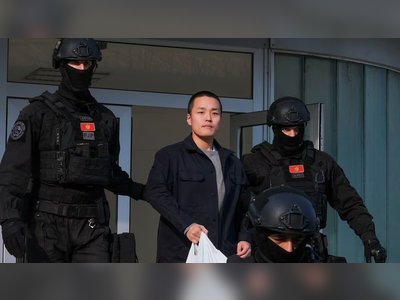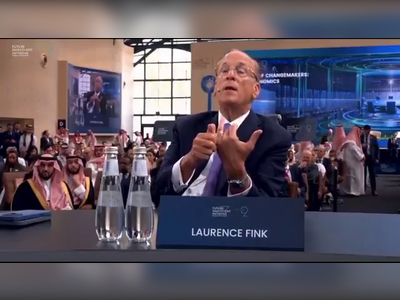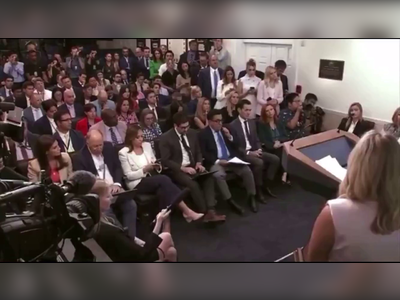
After Munich meeting, the US-China relationship is still a mess
Chinese Director of the Office of the Central Foreign Affairs Commission Wang Yi and US Secretary of State Antony Blinken met on the sidelines of the Munich Security Conference on Saturday, weeks after Blinken’s planned trip to Beijing was canceled due to what the US says was a Chinese surveillance balloon shot down on February 4. Relations between the two nations are at the lowest point in decades, and Saturday’s meeting didn’t do much to improve the situation.
The primary focus of the conference was Russia’s invasion of Ukraine, the one-year anniversary of which is approaching, but Wang and Blinken’s meeting was a critical and much-watched sideshow to the main event given recent tensions over the Chinese balloon. Wang took the opportunity to paint the US response to the device, which China maintains was a civilian weather balloon that was blown off course, as “hysterical” and “absurd.”
Though European nations and the US expressed solidarity with Ukraine and a commitment to providing the country with weapons, Wang was more circumspect, saying only that China supported dialogue and an end to the war. Blinken, for his part, told CBS’s Face the Nation Sunday that he was concerned China might provide material weapons support to Russia. “We have seen [Chinese companies] provide non-lethal support to Russia for use in Ukraine,” Blinken said, though he did not specify what that support entails. “The concern that we have now is based on information we have that they’re considering providing lethal support, and we’ve made very clear to them that that would cause a serious problem for us and in our relationship.”
According to a February 13 report by the Stimson Center, a nonpartisan think tank, China has not thus far provided military support to Russia, at least as far as publicly available information shows, despite providing economic support in the form of increased trade.
But China’s “no limits” relationship with Russia and the surveillance balloon are just the latest points of tension between the two major world powers; long-standing issues over trade, US presence in the Pacific, and the opposing world views of the West and Xi Jinping have laid the groundwork for the present tension.
China sees the world differently
As Vox’s Jen Kirby wrote earlier this month, the crisis over the alleged Chinese spy balloon demonstrates “just how unstable the current relationship is between these two countries.”
A primary cause of tension is the US presence in the East and South Pacific; strong US military relationships with Japan, South Korea, Taiwan, and the Philippines threaten Chinese power in the region, particularly over disputed areas like Taiwan and the Senkaku Islands, which China also claims.
“Beijing has been warning against what they see as US plans for containment and perhaps encirclement,” Ja Ian Chong, associate professor of political science at the National University of Singapore and nonresident scholar at Carnegie China, told Vox in an interview Saturday. “An important component of this criticism is a claim that Japan is reverting to its militarist pre-World War II past. Taiwan, along with the East and South China Seas, are important access routes for the PRC and are in positions to affect the PRC’s ease of reach into the Pacific,” and play key military and nationalistic roles, too.
Concerning Taiwan, China has presented an increasingly bellicose posture toward the island and US military support for it since at least the 1995-1996 Taiwan Strait crisis. Taiwanese President Lee Teng-hui, who Beijing’s leadership perceived as pursuing Taiwanese independence, made an unofficial visit to the US in June of 1995, sparking Chinese military exercises and missile tests within range of Taiwan over several months; Washington responded by sending two aircraft carrier groups, one to the East China Sea and one to the Taiwan Strait, in a show of support for Taiwan.
That incident helped precipitate increased defense spending and development in China, which has in turn precipitated an increasingly antagonistic military presence. “On the PRC side, as they become more capable, they appear more willing to adjust the world to their preferences — which is something major powers tend to do,” Chong said. “Beijing became more willing to assert its claims over areas it believes it ought to own, such as large areas of the East and South China Seas, and Taiwan.”
Although there are key historical and political differences between China’s relationship to Taiwan and Russia’s relationship to Ukraine, there are parallels, too, especially in the present moment as leadership in China insists that Taiwan is part of mainland China.
More recent incidents, such as former Speaker of the House Nancy Pelosi’s August visit to Taiwan and trade disputes during the Trump administration, have played into the friction — all of which came to a head over China’s support for Russia and now the balloon incident.
Can the US and China come back from the brink?
Though it seems that the tension between the US and China is at a peak right now, it’s worth remembering that Chinese President Xi Jinping has been in power for 10 years already, coinciding with three different US administrations.
Core ideological differences underpin the hostilities between China and the US, Chong said. “The PRC is fundamentally distrustful of the US system and ideas, believing that their spread into China could present a threat to CCP rule,” while “Washington increasingly [sees] PRC support of authoritarian regimes as destabilizing and inimical to its own interests.”
Though the meeting between Wang and Blinken opens up direct communication between the two countries, Blinken’s Sunday interview indicates that the dialogue was less than productive; Wang didn’t apologize for the balloon incident, nor did he reassure his US counterpart that China wouldn’t provide weapons to Russia.
That’s not surprising, Chong said, given Wang’s adherence to “wolf warrior diplomacy,” a term for the belligerent and coercive foreign policy strategy employed under Xi. “Wang did not previously have a reputation of being particularly harsh or strident before the Xi leadership,” Chong said, but “as the Xi leadership undertook a more strident and forceful tone on the global stage, Wang became a faithful implementer of ‘wolf warrior diplomacy.’ Indeed, he seems to have become emblematic of that PRC brand of approach to foreign policy.”
Without clear communication lines, both diplomatically and militarily — China’s defense minister has reportedly refused calls with Secretary of Defense Lloyd Austin — there’s no path to dial down the tension and steer forward a path. As Kirby wrote:
Neither Washington nor Beijing have a clear sense of how to communicate or deconflict, and don’t even have many channels to regularly practice doing so. That ambiguity makes a miscalculation or an escalation more likely. As China seeks to build its power abroad, and the US seeks to contain or restrain it, the possibility of close calls or misunderstandings will build with it.
Nonetheless, in his Sunday interview, Blinken called for communication with the Chinese government. “We have to manage this relationship responsibly,” he said. “We have to make sure that the competition that we’re clearly engaged in, does not veer into conflict, into a new Cold War.”
Comments











